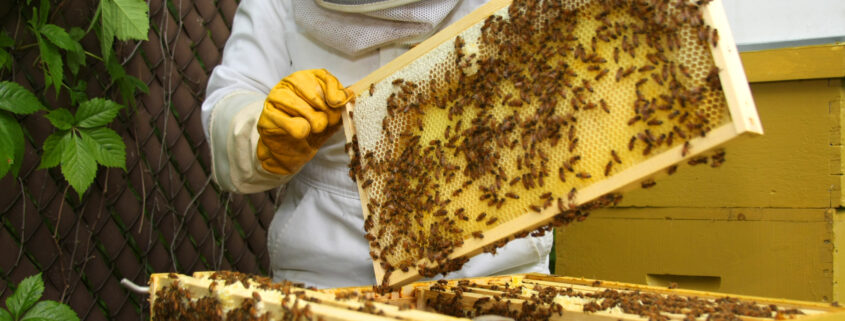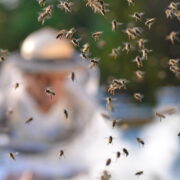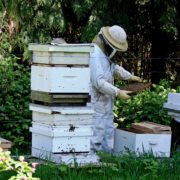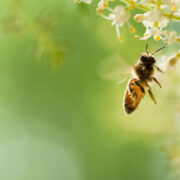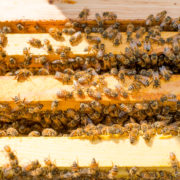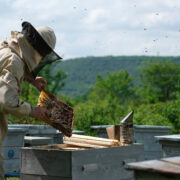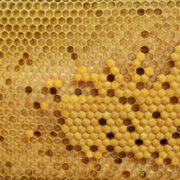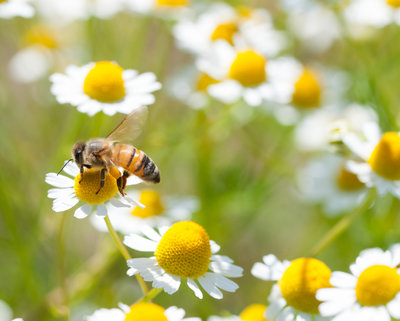Keeping Honeybees is About More Than Just Honey
Beekeeping is more than just about honey (although it’s a fantastic perk). People who keep honeybees—if they are humane and respectful to their bees—are serving nature and humanity by building the number and strength of pollinators available.
Honeybees are essential for the reproduction of many plant species and food crops. From the ecosystem perspective, bees are more valuable as pollinators than honey producers. This is because pollination sustains the reproduction of countless plants. In contrast, honey production is generally only valuable to the bees themselves (as well as any other species that eats their stores, such as bears and humans).
It is estimated that one out of every three bites of food we eat is made possible by pollinators. This percentage is even greater when focusing exclusively on fruits and vegetables, as honeybees make up 80-90 percent of global fruit and vegetable pollination!
Without honeybees, our world would look very different. The loss of bees would likely have a ripple effect on the entire ecosystem, as plants and animals that depend on each other would no longer be able to thrive. Many plants simply would not be able to reproduce. As a result, humans would lose a massive amount of the fruit, vegetables, and nuts we rely on for food.
This is not to deny that bees also produce honey and beeswax, which are valuable commodities in their own right. Before the European discovery of the new world, honey was practically the only sweetener available to people in medieval times. This changed, however, with the European discovery and colonization of the Americas. Vast sugar cane plantations gave rise to a global sugar trade, along with cheap and abundant sugar supplies. As a result, sugar has crowded out honey as the world’s primary sweetener.
Similarly, the development of the petrochemical industry in the twentieth century gave rise to paraffin, which has almost completely replaced beeswax as the preferred wax for candles. As a result, honey and beeswax have become specialty and niche products these days. This leaves pollination as the most valuable service of honeybees by far.
As beekeepers, it is our job to ensure that honeybees continue to play a vital role in our world. The decline of pollinators is an ongoing worldwide crisis. Pollinator populations have been taking a nosedive in recent years due to various factors, including habitat loss and pesticide use. This is a serious dilemma, as pollinators are crucial for the health of our planet.
The modern agriculture industry needs to feed 8 billion people—this number continues to grow each year. Keeping honeybees is primarily about helping to ensure the health of our ecosystems. One of the most important things you can do as a beekeeper is to take care of your bees healthily and humanely. You can also do your part by planting native flowers and trees and avoiding pesticides.

